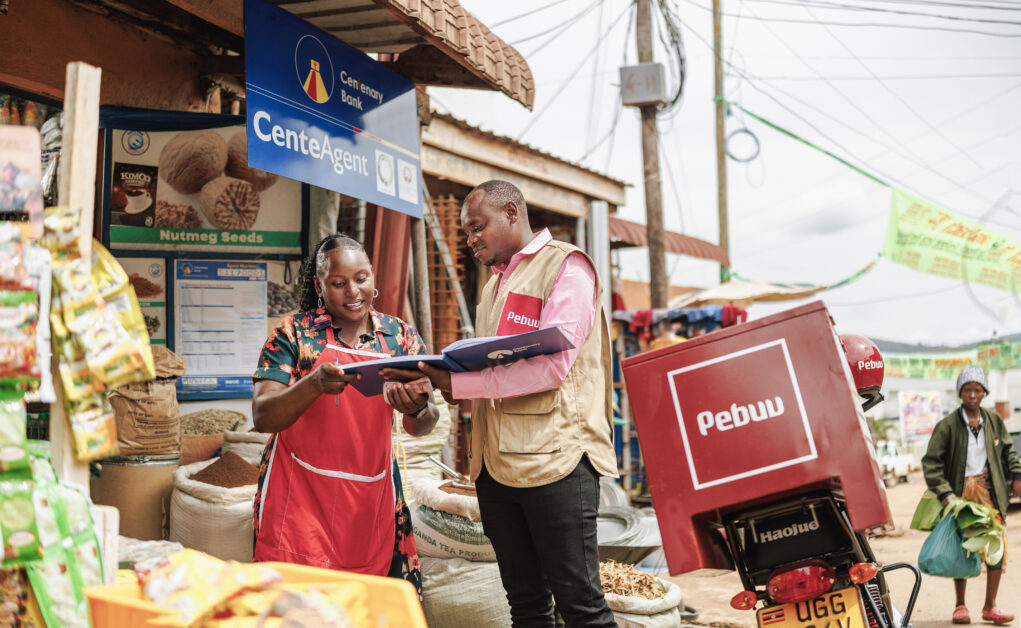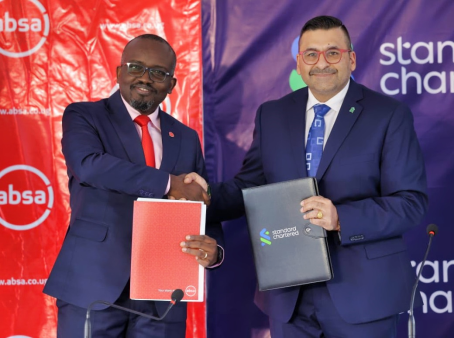The bridge between agency banking and Islamic banking could revolutionize the way banking services are delivered and consumed in Uganda.
When Islamic banking was introduced in Uganda, it generated a mix of skepticism and excitement. Rooted in Shari’ah principles that emphasize ethical and accessible financial solutions, the concept intrigued both Muslim and non-Muslim communities. However, despite the amendment of the Financial Institutions Act in 2016 to accommodate Islamic banking and the subsequent establishment of Shari’ah-compliant financial institutions, the sector’s growth has remained sluggish. This slow expansion persists despite the availability of competitive product offerings tailored to Uganda’s diverse financial landscape.
Uganda has over 29 commercial banks and credit institutions, yet only a few have embraced Islamic banking, with most continuing to rely on conventional models. This divergence in policy and operational frameworks has hindered full integration into the mainstream financial system. However, across Africa, Islamic banking is expanding at an annual rate of 10–12%, contributing to macroeconomic stability through investments, financial resilience, and government financing. Countries like Nigeria, Senegal, Mali, and Gambia have established strong Islamic banking roots, while Kenya and Tanzania have integrated Islamic banking services through dedicated institutions or service windows. According to the Global Islamic Finance Development Center, Shari’ah-compliant financial assets were estimated at approximately $2 trillion by the end of 2024, covering banking, capital markets, and insurance (Takaful).

Despite Africa’s growing Islamic banking sector, a key challenge remains: how can it scale at the microeconomic level and drive financial inclusion, SMEs growth, and ethical consumer finance in Uganda—especially in markets where conventional banking institutions like Stanbic Bank, Centenary Bank, and Housing Finance Bank have successfully expanded their reach. These large banks have thrived through partnerships with communities and firms like Pebuu to advance their agent banking services. Pebuu’s operates in over 320 locations nationwide and offers agent management, acquisition, geo-mapping, embedded finance and last mile logistics, to these banks. These services have further strengthened these banks’ agent banking channels especially at the grassroots. A similar model tailored to Shari’ah-compliant finance could prove transformative for Islamic banking.
Another crucial growth avenue for Islamic banking in Uganda lies in deepening financial inclusion by targeting the unbanked population currently estimated at 87% of Uganda’s population aged 10 years and above according to the 2021 National Labour Force Survey. This population is more in the rural areas, many of whom are still excluded from conventional banking due to religious, financial or ethical reasons. There is also a significant portion of Muslims residing in these rural areas, particularly in the eastern districts like Bugiri, Jinja, and Pallisa, where Islam has a stronger presence due to historical factors. Islamic banking’s core principles—such as the prohibition of interest (Riba), promotion of profit-and-risk sharing, and ethical financing—make it a viable solution for underserved communities. However, to extend its footprint beyond urban centers, Islamic banks must adopt agency banking as a primary expansion strategy.
Agency banking presents a cost-effective model for financial service delivery by allowing banks to leverage third-party agents instead of investing in expensive brick-and-mortar branches. For Islamic banking, this strategy can be tailored to suit Shari’ah-compliant practices that can be managed through the Muslim leadership like the Shaykhs, Kyai, Imam and Muezzin at the different levels and use of community centers as banking touchpoints. If properly structured these could facilitate essential financial services such as deposits, withdrawals, and savings, creating a seamless network of Shari’ah-compliant banking agents in rural and hard-to-reach areas. Banks like Stanbic Bank and Centenary Bank are effectively expanding financial services by unlocking microcredit access for small businesses and individuals. By leveraging their widespread agent networks, these banks have enabled customers to apply for and receive small loans without the need to visit physical branches. Automated credit scoring models, digital KYC, and real-time transaction tracking have made microcredit more accessible and efficient and many other banks are benchmarking this model.
Benching the successes of these banking with tens of thousands of banking agents nationwide, Islamic banking can introduce low-risk microcredit through Islamic bank agents operating within the local communities where Imams or Shaykhs can act as guarantor for both account opening and accessing financing for local customers with known and verifiable viable enterprises. The assigned leader will essentially oversee both the spiritual and the financial wellbeing of their community, providing a seamless integration between religious and entrepreneurial success.
To effectively implement agency banking within an Islamic banking framework, several key factors must be considered. With an estimated 13.2% of Uganda’s population identifying as Muslim (approximately 6,051,317 million people), there is a sizable market for Shari’ah-compliant financial solutions. Islamic banks should develop agency banking solutions aligned with Islamic finance principles such as Murabaha (cost-plus financing) to support SME trade-based financing. Agents can be empowered to onboard customers onto micro-Takaful (Islamic insurance) schemes, broadening financial protection for low-income groups. Musharakah (partners in joint venture share in the profits and losses of an enterprise) and Mudarabah (one party supplies the money and the other provides management in order to do a specific trade) -based microfinance models can be introduced through agents to encourage ethical entrepreneurship.
With Uganda experiencing rapid digital banking adoption, financial technology solutions must be tailored to ensure Shari’ah-compliant digital transactions. By integrating robust technologies similar to those used by large banks like Stanbic and Centenary bank to streamline agent management, reduce operational risks, geo-map agents and achieve regulatory compliance, with tools like Pebuu’s Fieldpecker an agent and merchant management platform, that remotely supports over 32,000 bank agents countrywide, Islamic banking has the potential to economically deploy and expand its services to reach even the most remote parts in the country. A 360-degrees agent management system is key to any bank’s survival in the current times. By embracing innovation, Uganda’s digital banking ecosystem can foster financial inclusion, making ethical banking more accessible nationwide. Mobile banking solutions should be optimized for interest-free transactions, catering to the unique needs of Islamic banking customers.
Islamic banks must train their agent networks in Shari’ah principles to ensure compliance and build consumer trust. Collaborations and regulatory alignment with the Bank of Uganda is necessary and essential to streamline policies governing Islamic banking-agent networks. Also, partnerships with telecom providers can facilitate mobile money integration into Islamic banking services, bridging the gap between digital finance and ethical banking.
Another major hindrance to Islamic banking adoption is the misconception that it is exclusive to Muslims. To overcome this, Islamic banks must invest in continuous public awareness communication explaining the benefits of Shari’ah-compliant finance for all Ugandans. Simplifying communication around Islamic banking is key to ensuring that even hard-to-reach communities can confidently understand the products and benefit. While institutions like Bank of Uganda and the Uganda Muslim Supreme Council have made efforts to promote Islamic finance, more work remains to be done to drive awareness and adoption.
Grassroots engagement in rural areas is crucial. The need for the right partnerships with a nationwide reach that can easily plug into the current Muslim structure model from the Supreme Council to the grassroots Muslim. Aligning with super and micro agents is paramount to establishing agency networks in locations such as Kalangala, Arua, Mbale, Yumbe, and selected areas of Kampala as it will enable personalized banking services, fostering long-term relationships at the financial pyramid’s base.
For Islamic banking to thrive in Uganda, it must leverage agency banking as a strategic driver of financial inclusion. Countries with well-established Islamic banking systems contribute up to 5% of GDP through ethical finance models. By integrating Shari’ah-compliant financial products, digital innovation, agent training, regulatory support, and community engagement, Islamic banking can become a transformative force in Uganda’s banking sector. With the right execution, it will not only expand access to ethical financial services but also contribute significantly to Uganda’s economic development and financial resilience.

 Why Weekends No Longer Mean Stalled Business - dfcu’s Weekend Agent Float Loan Is Transforming Uganda.
Why Weekends No Longer Mean Stalled Business - dfcu’s Weekend Agent Float Loan Is Transforming Uganda.


